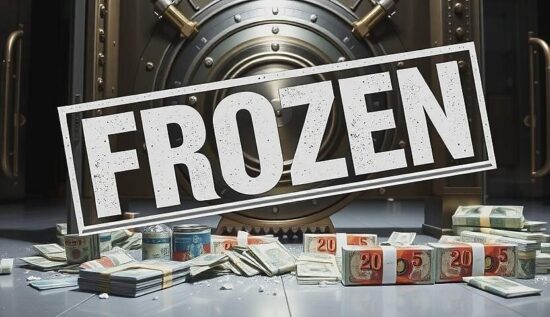The State Secretariat for Economic Affairs (Seco) has published the latest figures on the blocked Russian assets in Switzerland. As of the end of March 2025, the total amount reached 7.4 billion francs, an increase of 1.6 billion compared to the previous year.
The growth is mainly attributed to investigations by the Swiss Federal Prosecutor’s Office, which has launched a procedure for violations of the Russia sanctions and money laundering. In the course of these investigations, an additional 1.65 billion francs were frozen. At the same time, 370 million francs were released, as individuals were removed from the sanction lists or restrictions were deemed no longer justified.
In total, 1859 individuals, 541 companies and organizations are currently subject to sanctions. Besides monetary amounts, 14 properties, sports cars, luxury cars, planes, art pieces, furniture and musical instruments are also frozen. The Seco does not provide information on the identities of the owners.
A separate point is the assets of the Russian Central Bank in Switzerland, which currently amount to 7.45 billion francs. Since March 2022, transactions with these funds have been prohibited. Unlike in the EU, where the interest earnings from frozen central bank funds are used to support Ukraine, the Swiss government, according to the Seco, cannot take such measures. The funds are held by commercial banks and not by the Swiss National Bank.
Switzerland has aligned itself with the EU sanctions against Russia and has become increasingly unattractive for Russian investors. According to the Bank Association, Russian assets in Switzerland were once managed to the tune of up to 150 billion francs. In the last two years, non-sanctioned Russian bank deposits decreased from 46.3 billion to 12.9 billion francs.
Many Russian clients have transferred their assets to other countries or were pushed by the banks to end their business relationships due to risk assessments.





